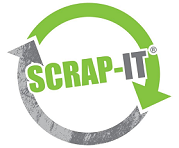
- We get fossil fuel vehicles off the road, permanently. They are dismantled and shredded, not recycled in the traditional way where parts are sold to keep other older polluting vehicles on the road. SCRAP-IT is truly an end-of-life program.
- Residents of BC want good value for their end-of-life vehicle, and they also want to know they are doing the right thing for the environment in the process.
- The Province currently offers point-of-sale discounts to customers who purchase qualifying new clean technology vehicles. This program (CEVforBC under the Clean BC plan) does not require a scrap vehicle and currently does not include used replacement vehicles (although there are some indications that it may in the future).
- The Federal government also offers a point-of-sale discount for qualifying vehicles, but do not currently require a scrap vehicle. However, it should be noted that a recommendation has been made by the Standing Committee on Environmental and Sustainable Development to include a scrap vehicle component going forward (Recommendation #2 on Page 3). It only makes sense.
- If you trade in your older fossil fuel vehicle for a qualifying vehicle under the CEVforBC program at a dealership, chances are the dealer will sell that vehicle at auction. This practice keeps the fossil fuel vehicle on the road for someone else to drive and pollute.
- The Zero Emission Vehicles Act requires automakers to meet escalating percentages of light-duty ZEV sales and leases by the identified milestone years. The legislation’s goal is to ensure the Province’s greenhouse gas (GHG) reduction targets are met. We support this but we also believe it is reasonable to say that every fossil fuel vehicle permanently removed off the roads in BC will support increased progress toward the GHG reduction target and improve the overall results.
- We support the CEVforBC program but suggest that there is room in the marketplace for both. Some BC residents have end-of-life vehicles that they are willing to scrap when they move into a cleaner vehicle and some do not. For those who do, we think the SCRAP-IT program should be available to those who are willing to use it.
- If the overarching issue is climate change (hence the need to reduce GHG emissions) it makes sense to remove ANY fossil fuel burning vehicle off the road permanently. It is now commonly known that 28% of carbon emissions come from the transportation sector. SCRAP-IT is one of the key programs in BC that directly addresses this issue.
- Between January 1, 2015 and December 31, 2020 we scrapped 6,251 fossil fuel burning vehicles and replaced them with electric vehicles.
- This resulted in a reduction of 75,912 metric tonnes of CO2 from the air. Imagine 75,912 hot air balloons in the sky all at once.
- This CO2 reduction calculation is related to our scrap to electric vehicles only. If we added in all the CO2 reductions from over 50,000 vehicles scrapped, the CO2 reductions would be in the millions.
- SCRAP-IT actively reduces CO2 emissions from the transportation sector by taking currently registered and insured operating vehicles off the road and replacing them with electric vehicles. Every fossil fuel vehicle that is permanently removed takes us 1 step closer to the goal of 100% light-duty electric vehicle sales by 2040. If there are no fossil fuel vehicles to buy, then they will not be on our roads. Its that simple.
- We track and calculate the emission reductions between all vehicles – the scrapped vehicle and the replacement vehicle. With that data we can accurately calculate CO2 emission reductions.
- We ensure the proper recycling of vehicle components in accordance with the Canadian Auto Recyclers’ Environmental Code (CAREC), and we go one step further by requiring complete and final destruction.
- Proper recycling prevents multiple hazardous materials from entering the environment like mercury switches, toxic fluids like solvents, windshield fluid and gas.
- Shredded metal from vehicles is sold into secondary metal markets. It may return to your household as a toast or even a coffee maker.
There are many economic and financial benefits related to our program. Below is just one good example.
- SCRAP-IT transactions generate PST revenue for the province. Our program entices residents to make the decision they might not have otherwise made. If you read our Google Reviews (bottom), you will see how many people credit our program as part of their decision-making process.
- Every time someone scraps a vehicle with us and buys a new one, they are paying taxes on the new vehicle, including Provincial Sales Tax.
SCRAP-IT can convert a $4 million grant from the BC Provincial Government into $11.5 million dollars in PST revenue for the province.
Here’s how:
- We have scrapped over 50,000 vehicles in BC, and we have a significant database of information about each one of those transactions. Since 2015 we have been offering rebates for scrap to electric vehicle transactions, and up to the end of 2020, we completed over 6,000 transactions. From this data set, we are able to confirm the following:
- The average purchase price of replacement new clean technology vehicles through our program was $45,270.
- The PST varies according to the purchase price, and can be anywhere from 7% to 10%. The PST rate for this price point is 12%.
- This means that on average our customers paid $5,432.00 in PST on their new vehicle purchases.
- It should be noted that the point-of-sale discount on vehicles purchased at a dealer is applied AFTER the PST calculation. In other words, the point-of-sale discount does not reduce the amount of PST the customer pays.
- SCRAP-IT customers are paid a rebate, after the transaction is complete, and does not influence the PST that is applicable. SCRAP-IT customers can use that rebate for anything they like, for example, to pay down the vehicle loan (if there is one) or cover insurance costs, or even to purchase and install and electric vehicle charging system.
- If (for example) the BC provincial government provided us with a $4 million grant, we could offer:
- 2,000 BC residents’ rebates of $2,000 to scrap their vehicle for a qualifying new one.
- 2,000 rebates x $2,000 = $4 million
- These 2,000 transactions would (on average) generate $11,464,000 in PST revenue for the province.
- 2,000 x $5,432 PST = $11,464,000
- Your tax dollars can do more than one thing. Sure, they can fund clean technology vehicles, but they can also fund environmentally focused programs like SCRAP-IT.
Climate Change Accountability Act
SCRAP-IT helps government achieve the BC Greenhouse gas emissions target levels by permanently removing internal combustion engine (ICE) vehicles off the road and providing rebates and incentives to BC residents who want to move to cleaner forms of transportation (electric vehicles, transit, e-bikes and/or car share). Government’s plan “requires greenhouse gases in B.C. to be 16% below 2007 levels by 2025. It provides a benchmark on the road to B.C.’s legislated emission targets for 2030, 2040 and 2050 of 40%, 60% and 80% below 2007 levels, respectively.” Aside from home heating sources, ICE vehicles represent the next biggest CO2 emitter in a single household’s carbon footprint.
Zero Emission Vehicles Act
SCRAP-IT helps the provincial government meet its 2025, 2030 and 2040 targets for new light-duty motor vehicle sales in BC by not only requiring the permanent removal of a fossil fuel vehicle off the road permanently, but by ensuring the highest rebates we offer are for the cleanest vehicles – battery electric. We believe that its one thing to have new technology available for the public to buy but its also important to remove and permanently dispose of fossil fuel vehicles in an environmentally proper way, so that it will not be resold into the marketplace and continue polluting.
Environmental Management Act, Part 6 – Clean Air Provisions
SCRAP-IT has always ensured that the approved replacement vehicles in our program are of the model year such that they were built with the approved emission control systems required to meet the then current emission control standards and/or regulations. For example, when the program first began, customers were required to scrap a 1996 or older vehicle and purchase a 2004 or newer vehicle. At the time, the 2004 and newer models were expected to meet the most current (at the time) emission control standards. Today our focus is on electric vehicles which are 100% emission free.
Environmental Management Act – Vehicle Dismantling and Recycling Industry Environmental Planning Regulation
Our scrap vehicle partners must have a waste management plan describing how they will follow the Act. These plans are subject to audit by the Ministry of Environment.
Environmental Management Act – Hazardous Waste Regulation
Our scrap vehicle partners handle hazardous waste from vehicles regularly. The waste management plan must describe how each of the following hazardous substances will be removed from wet vehicles at their facilities: ozone depleting substances and other halocarbons; oils, brake fluids, solvents, fuels and other hydrocarbons; antifreeze; lead and lead-acid batteries; tires; mercury switches; windshield washer fluid
Greenhouse Gas Reduction (Renewable and Low Carbon Fuel Requirements) Act
SCRAP-IT has assisted obligated parties under the Regulation to meet the carbon intensity (reduction) requirements.
Vehicle Safety
This report is US-based but logically applies to vehicles sold in Canada as well.
- Old vehicles were built to less stringent safety standards, and their safety deteriorates with age.
- New vehicles are built to better standards, and they have not deteriorated.
- Safer vehicles are less likely to be involved in accidents, and when they are involved, their occupants are better protected, thus leading to less severe injuries, less expensive medical care, and lower insurance payouts.
Public Health
Study Suggests Each Electric Car Brings Nearly $10,000 in Social Benefits
Air pollution likely to make coronavirus worse, say UK government advisers
- Improved air quality leads to improved public health, thus lowering overall pressure on the health system.
- Improved road safety reduces accidents and reduces need for emergency care and long-term care.
- Increased bicycle use provides exercise and improves health.
- Safe removal and disposal of toxic components from recycled vehicles lowers the probability of public exposure and subsequent chronic health problems.
